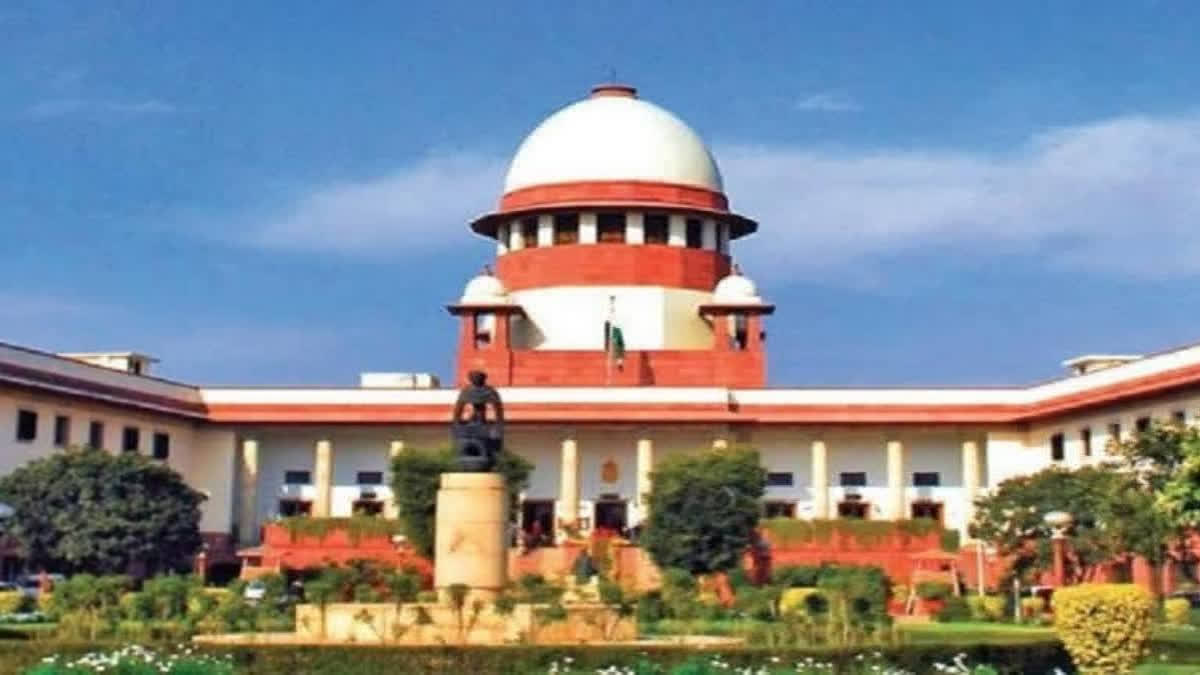New Delhi: The Supreme Court on Tuesday said mere allegations of harassment are not enough unless the accused’s actions were so compelling that the victim perceived no alternative, but to take their own life while discharging a man and his parents charged with abetment of suicide of the man’s wife.
A bench comprising justices Vikram Nath and Prasanna B Varale, said, “For a conviction under Section 306 IPC (abetment of suicide), there must be clear evidence of direct or indirect acts of incitement to commit suicide. The cause of suicide, especially in the context of abetment, involves complex attributes of human behaviour and reactions, requiring the court to rely on a cogent and convincing proof of the accused’s role in instigating the act."
The bench said mere allegations of harassment are not enough unless the accused’s actions were so compelling that the victim perceived no alternative but to take their own life and such actions must also be proximate to the time of the suicide.
The bench said the court examines whether the accused’s conduct, including provoking, urging, or tarnishing the victim’s self-esteem, created an unbearable situation. “If the accused's actions were intended only to harass or express anger, they might not meet the threshold for abetment or investigation. Each case demands a careful evaluation of facts, considering the accused’s intent and its impact on the victim”, said Justice Nath, who authored the judgment on behalf of the bench.
The bench said it is essential to establish that the death was a result of suicide and that the accused actively abetted its commission and this can involve instigating the victim or engaging in specific actions that facilitated the act. “The prosecution must prove beyond doubt that the accused played a definitive role in the abetment. Without clear evidence of an active role in provoking or assisting the suicide, a conviction under Section 306 IPC cannot be sustained”, said the bench.
The bench said in cases of the death of a wife, the court must meticulously examine the facts and circumstances of the case, as well as assess the evidence presented. “It is necessary to determine whether the cruelty or harassment inflicted on the victim left them with no other option but to end their life. In cases of alleged abetment of suicide, there must be concrete proof of either direct or indirect acts of incitement that led to the suicide”, said the bench.
The bench said, in the present case, there appears no proximate link between the alleged facts, instances of harassment and her subsequent death by hanging. The bench said the alleged incident of selling gold ornaments and subsequent physical and mental harassment, as alleged, occurred almost a year before the FIR was registered at the instance of the father of the deceased.
The bench said selling of gold ornaments and the same was followed by discord and harassment upon their demand, even if true, did not reflect any intention to instigate, incite or provoke the deceased to commit suicide. “Mere harassment and such issues between the wife and her husband along with the in-laws do not appear to create a scenario where she was left with no option other than to end her life”, said the bench.
“There is, therefore, absence of mens rea to instigate suicide of the deceased persons. Therefore, prima facie, it appears that the appellants did not have the requisite mens rea and neither did they commit any positive or direct act or omission to instigate or aid in the commission of suicide by the deceased”, said the bench.
The bench said the appellants’ argument that the deceased had not made a single complaint for cruelty or harassment against them in the twelve years of marriage cannot be sustained. Merely because she did not file any complaint for twelve years does not guarantee that there was no instance of cruelty or harassment, it said.
In the present case, the deceased has committed suicide after twelve years of marriage. In these twelve years, the father of the deceased and other witnesses on record has stated that the deceased had informed them on multiple occasions that she was subjected to physical and mental harassment by the appellants herein. The bench said it has also been stated that once before she had returned to her parental home owing to the alleged cruelty and was later sent back to her matrimonial house.
The apex court’s judgment came on an appeal filed by Jayedeepsinh Pravinsinh Chavda and others against an order of the Gujarat High Court, passed on May 9, 2024, which rejected a criminal revision application by them and refused to discharge them from offences punishable under sections 306, 498A and 114 of the Indian Penal Code. Section 498A, IPC provides for punishment to the husband or relatives of the husband of a woman subjecting the woman to cruelty.
“the appeal filed by the appellants is partly allowed, they are discharged from the charges under Section 306 of the IPC, however the charge under Section 498A of the IPC is upheld and the trial under this provision shall proceed against them”, said the apex court.
An FIR was registered against the appellants’ on April 18, 2021, at the instance of the deceased’s father.
On April 18, 2021, the deceased’s father received information that the deceased had committed suicide by hanging herself. It was alleged that it was due to the physical and mental harassment meted out by the appellant-accused that the deceased was compelled to commit suicide.
Appellants had earlier sought quashing of the FIR, which petition was dismissed by the high court and even the special leave petition before the apex court against the dismissal order of the high court was dismissed as withdrawn.



